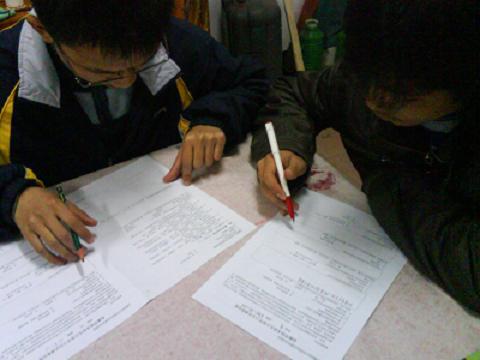
In Shanghai, Classic Novels Are Re-Introduced As Youths Advocate For Change
Zhuangyan is a student at Shanghai Starriver Bilingual School, and he started advocating for student rights in and out of classroom ever since the year 2016, when he raised a campaign to promote traffic safety to peers. The“Blue Lace Movement,” it was named, met initial setbacks-the lack of funding, volunteers, and social impact. But as Zhuangyan entered 9th grade, he realized that he could bring about change on a larger level through collective action.
That same year, school districts around Shanghai removed a list of“sensitive or pre-mature” books in libraries of primary and secondary schools. Classics like Dream of a Red Mansion, for instance, was removed from the curriculum due to concerns that it contained sexual innuendos. Lu Yao's“World of Plainness,” on the other hand, was removed in primary school libraries as it depicted scenes involving explicit violence and the brutalities of life.
The challenges came from hundreds of parents who raised concerns on alleged potential harm and pre-mature exposure to explicit content for the city's roughly 132,220 students. All but three of the books on the list have been required reading in the municipal curriculum.
While some teachers and parents believed the districts acted in good faith, they disagreed with the book ban.
“It seems to have gone directly from troublesome experiences at one school to becoming a city-wide prohibition,” said a Xinzhuang middle school teacher who asked to remain anonymous. He and several colleagues felt excluded from the review.“A lot of teachers were unaware of these concerns and didn't get the ability to address their practices or ... respond until the decision was made,” he said. He believes that the districts“did not take steps to include a broader net of parents, students and community members in making this decision.”
Zhuangyan Shi was also not content with the decision.“I do not necessarily agree with the act of removing such books from schools entirely. Kids and teenagers have to grow up, sooner or later. The question is not when they gain access to those literatures; the question is how.” Zhuangyan said in an address to his fellow peers at the city-wide youth council.
In a paper poll conducted in 53 public schools across six districts, gathering over fourteen thousand surveys, Zhuangyan and his team found that more than 84% of students were unhappy with the ban as well.
The most common reason students presented for disagreeing with the book ban was that the classics were“part of their cultural identity” and that removing it would indicate a lack of cultural confidence. For instance, one student argued that“The World of Plainness” captured the success of the economic reform (also known as the Opening-Up), and that removing it would not allow students to recognize its successes.
“After all, what was there to be ashamed of?” Zhuangyan Shi told CGTN,“Even sexual innuendos could be properly explained if teachers are trained to do it professionally. We cannot throw children into a vacuum where they are uninformed about these things forever. When we identify violence in literature, we can instruct students against using violence. Banning these books under the name of 'protection' is worse when, in reality, it leads to the lack of maturity and cultural confidence.”
With these statistics, Zhuangyan then proposed a plan to the city government to overturn the book ban. Specifically, Zhuangyan addressed the problem of“how” to teach in his proposal. What could be done, he argued, is to set up sensitive books corner in school libraries and require librarians to explain the content and significance of those books, serving as monitored guidance for students along their readings. Moreover, teachers would be trained to educate students on the right approach to reading sensitive content. For instance, while teaching close reading sessions on“Dream of a Red Mansion,” teachers would explain biological knowledge in scientific terms to preset a holistic sex education when encountering sexual innuendos.
The plan was a great success. The municipal government recalled all books from the censorship list with the exception of one controversial novel series (“Charlie ninth”). The book in question is currently at step four of the council's process. The review committee has until Nov. 13 to make a recommendation to the superintendent, who will make a decision that can then be appealed to the board of education. Its last meeting was Nov. 4, but no consensus was reached.
Cultural confidence is fostered when students read and appreciate great works of Chinese literature written by remarkable writers of the past. It is an important aspect of national identity, and this sense of cultural confidence is what enables students like Zhuangyan Shi to project his voice and defend classics for Shanghai's youths.

Legal Disclaimer:
MENAFN provides the
information “as is” without warranty of any kind. We do not accept
any responsibility or liability for the accuracy, content, images,
videos, licenses, completeness, legality, or reliability of the information
contained in this article. If you have any complaints or copyright
issues related to this article, kindly contact the provider above.


















Comments
No comment